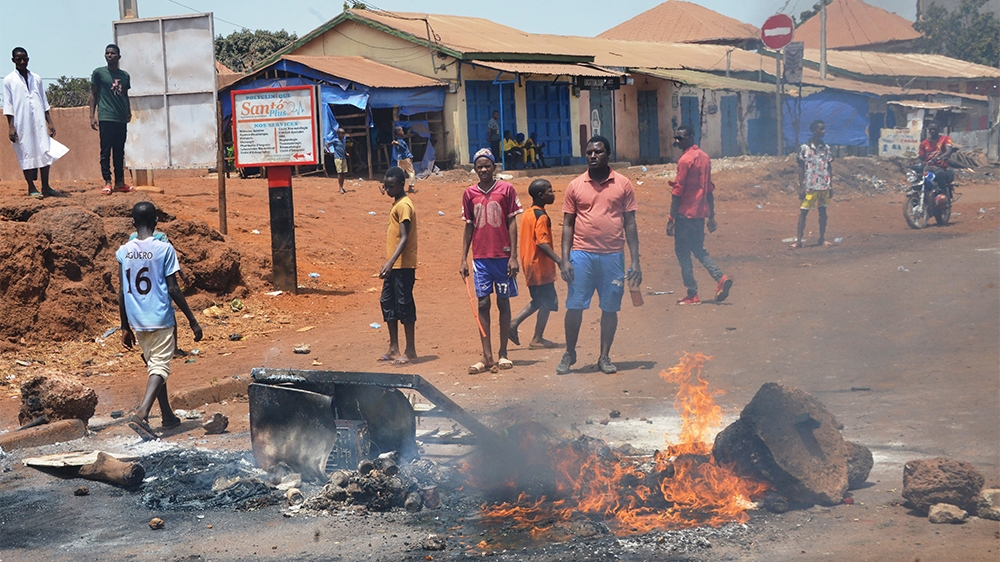Guinea voters back controversial constitution changes
New constitution would limit presidential terms to two, but potentially enable Alpha Conde to govern for 12 more years.

Guinea has voted overwhelmingly for a change in the constitution, according to the provisional results of a referendum, an outcome that the opposition fears will allow President Alpha Conde to govern for 12 more years.
Almost 92 percent of voters supported changing the constitution in last Sunday’s referendum, the president of the Independent National Electoral Commission, Amadou Salifou Kebe, said on Friday, while eight percent were against it.
Keep reading
list of 3 itemsGuinea protests: Renewed calls for president’s resignation
Guinea President Conde hints at third term bid despite protests
Turnout was 61 percent, Kebe told reporters, saying these were provisional figures. The Constitutional Court has eight days to confirm the results.
The referendum, originally scheduled for March 1, was pushed back because international observers raised concerns about its fairness. It was boycotted by the opposition.
Conde, 82, has not denied that he might use the proposed changes to seek another term when his second and final term runs out this year under the current constitution.
The new constitution would limit presidential terms to two but extend the length of the term to six years, potentially enabling Conde to govern for another 12 years.
It does not specify whether terms served under the previous constitution would count, but Conde has suggested they would not.
Controversial changes
The proposal to change the constitution has proved hugely controversial in the West African state, spurring mass demonstrations in which at least 32 people have been killed since October, according to an AFP news agency tally.
The authorities went ahead with the referendum after scrubbing some 2.5 million unverifiable names from its electoral register, following advice from the Economic Community of West African States.
The day of the vote was marred by violence, however, with scores of polling stations ransacked across the country and, according to the opposition parties, dozens killed.

Authorities said only a few deaths occurred on the polling day, and that the voting took place in peace.
Conde is a former opposition figure who was jailed under previous hardline regimes.
In 2010, he made history as the first democratically-elected president in a country with a chronic history of military coups and turmoil.
Voters returned him to office in 2015 for his second and final five-year term under the current constitution, but critics say he has become increasingly authoritarian.
The government argues that the constitution needs to be updated to usher in badly-needed social changes, especially for women.
Reforms would include banning female genital mutilation and underage marriage and giving spouses equal rights in a divorce.